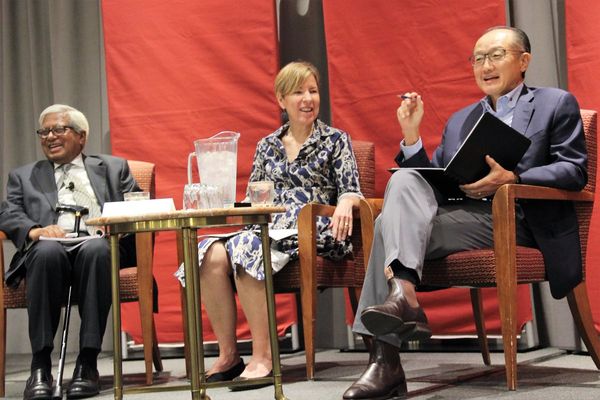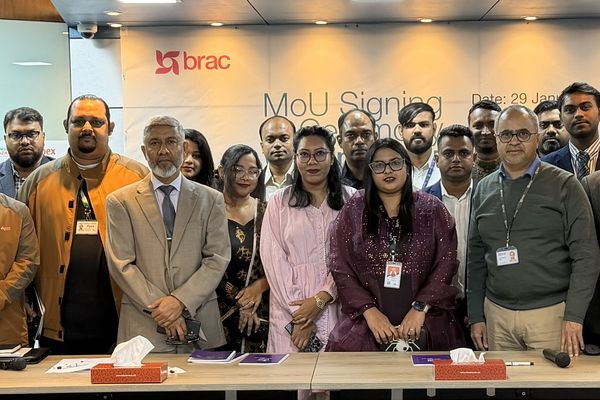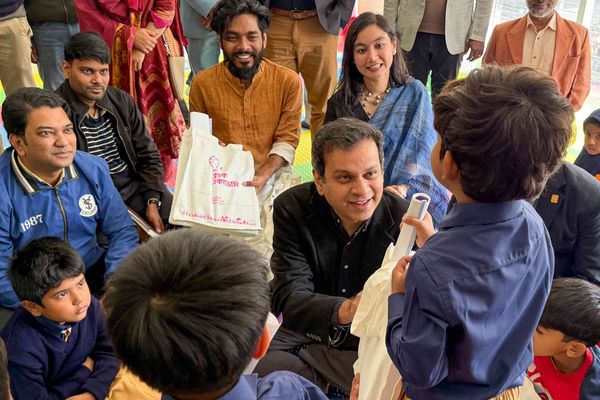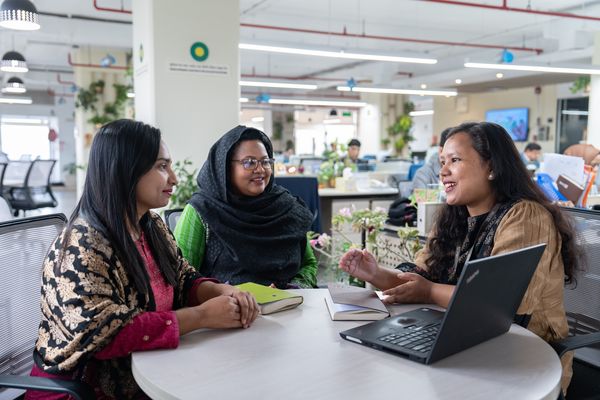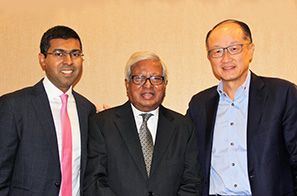
Dr Jim Kim and international development community hail BRAC as a global leader in ending extreme poverty
On Sunday, 23 July 2017, Sir Fazle Hasan Abed, founder and chairperson, BRAC shared the stage with Dr Jim Yong Kim, president of the World Bank Group at the annual RESULTS International Conference held in Washington, DC.
At the plenary titled Going the Last Mile, Dr Joanne Carter, executive director of RESULTS and RESULTS Educational Fund, recognised Sir Fazle and Dr Kim as two global leaders and practical visionaries who did “what the world had said was too hard or even impossible”, played a critical role in fighting tuberculosis, and had what it will take to get to the last mile in ending extreme poverty.
"One of the great tragedies is that not enough people in the world know about @BRACworld ". #Voices4RESULTS plenary session @WorldBank
— RESULTS Australia (@RESULTS_AU) July 23, 2017
Sir Fazle talked about the motivation behind BRAC’s globally successful graduation programme; reaching those trapped in ultra poverty.
'[Sir Abed has demonstrated that] there is no such thing as a hopeless person or a hopeless country' - @WorldBank President #Voices4RESULTS
— BRAC (@BRACworld) July 23, 2017
Dr Kim emphasised the need for governments today to invest in their own people and move away from supply-driven investments to demand-driven investments.
Both Sir Abed and Dr Kim highlighted the role that women can play in fighting poverty, and the need to mobilise them as ‘agents of change’ for poverty alleviation.
"If women manage poverty why can't they manage development? We see women as the main agents of change"- Sir FH Abed #Voices4RESULTS
— BRAC (@BRACworld) July 23, 2017
In his closing remarks, Dr Kim expressed his concern of rising aspirations everywhere;
“We are racing against time and the sense of urgency we have today is greater than it was ever before,” he said. “We have to get better at thinking about the foundations of human solidarity. We have to find a way forward. We have to commit and recommit to equality of opportunity,” he concluded.
Good to meet with Sir Fazle Abed of @BRACworld. I look forward to continuing our strong partnership. pic.twitter.com/wEDxST1Ec4
— Jim Yong Kim (@JimYongKim) July 23, 2017
Representatives from BRAC presented the details of their graduation programme in a separate panel with panellists from the University of New Hampshire, Uplift and the RESULTS Educational Fund. This session provided the opportunity to understand the various forms of social protection and livelihood programmes and the need to make such programmes more comprehensive, adaptive and scalable in order to reach the extreme poor and provide them with better support to help escape poverty sustainably.
